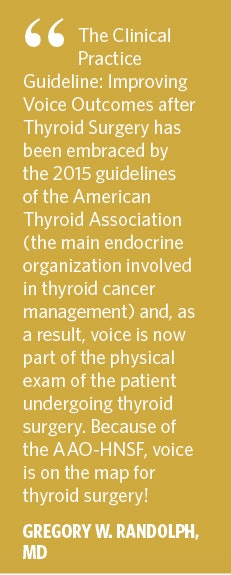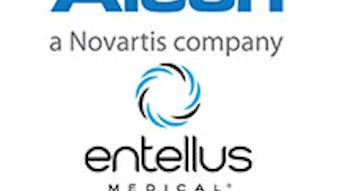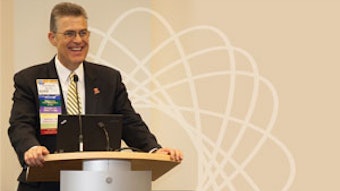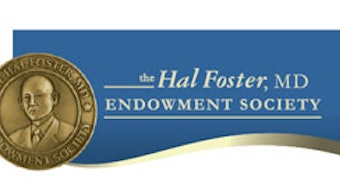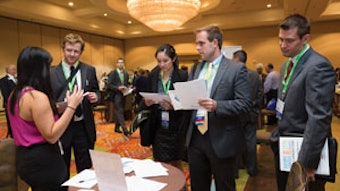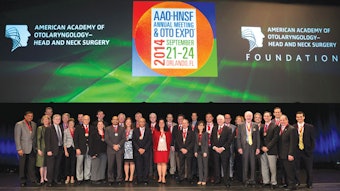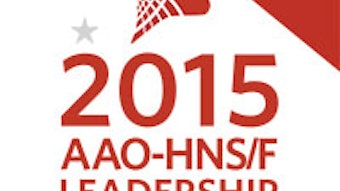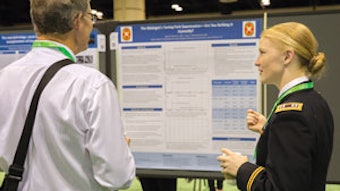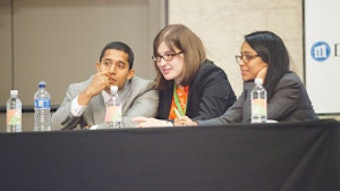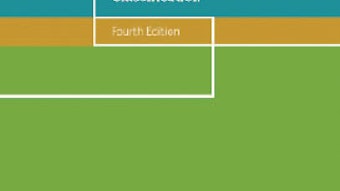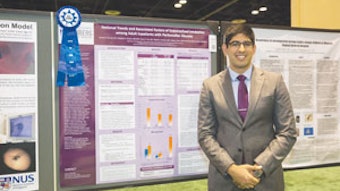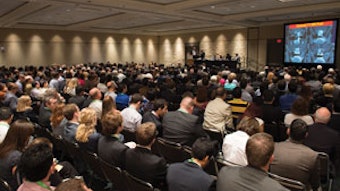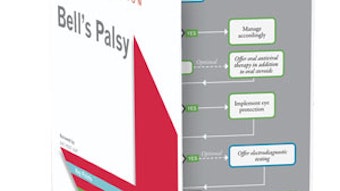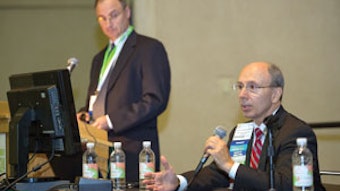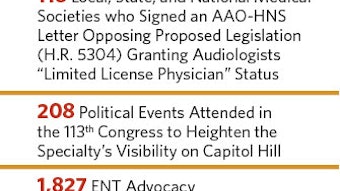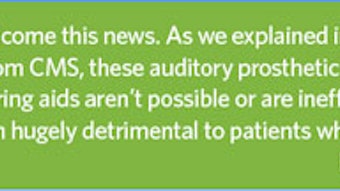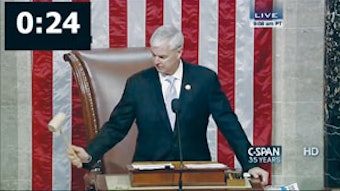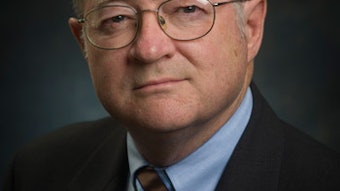2014 Annual Report: Dissemination, Education, and Implementation for Clinical Practice Guidelines
According to the 2014 Voice of the Member Survey, the top four benefits to Members, based on importance, are Clinical Practice Guidelines (CPGs), Otolaryngology—Head and Neck Surgery scientific journal, the AAO-HNS/F website (entnet.org), and the Annual Meeting & OTO EXPO℠.
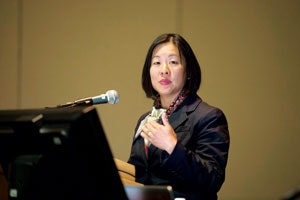 Sandra Y. Lin, MD, assistant chair of the Clinical Practice Guideline: Allergic Rhinitis, presents at the AAO-HNSF 2014 Annual Meeting & OTO EXPOSM in Orlando, Florida.
Sandra Y. Lin, MD, assistant chair of the Clinical Practice Guideline: Allergic Rhinitis, presents at the AAO-HNSF 2014 Annual Meeting & OTO EXPOSM in Orlando, Florida.According to the 2014 Voice of the Member Survey, the top four benefits to Members, based on importance, are Clinical Practice Guidelines (CPGs), Otolaryngology—Head and Neck Surgery scientific journal, the AAO-HNS/F website (entnet.org), and the Annual Meeting & OTO EXPOSM. All four offerings provide timely and relevant information that is easy to access. Our CPGs are also reaching beyond our Members to primary care and allied health professionals as illustrated by more than 472,009 views via the National Guideline Clearing-house and more than 2,000 citations, as reported by Google Scholar.
A second Choosing Wisely® list was developed for the specialty to be submitted by December 2014. As with the initial Choosing
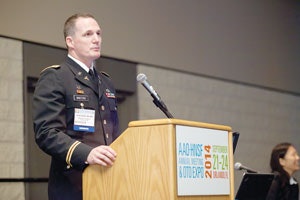 Scott E. Brietzke, MD, MPH, chair of the Clinical Consensus Statement: Pediatric Sinusitis, presents at the AAO-HNSF 2014 Annual Meeting & OTO EXPOSM in Orlando, Florida.
Scott E. Brietzke, MD, MPH, chair of the Clinical Consensus Statement: Pediatric Sinusitis, presents at the AAO-HNSF 2014 Annual Meeting & OTO EXPOSM in Orlando, Florida.Wisely® list for our specialty, many of the statements reference AAO-HNSF CPGs. An initiative of the ABIM Foundation,
Choosing Wisely® works to initiate conversations between providers and patients to ensure the right care is delivered at the right time. Participating organizations have created lists of “Things Providers and Patients Should Question,” which include evidence-based recommendations that should be discussed to help make wise decisions about the most appropriate care based on a patient’s individual situation. The Patient Safety Quality Improvement (PSQI) spearheaded the second submission from the AAO-HNSF, which includes the following statements:
- Do not place ear tubes in otherwise healthy children who have
had a single episode of ear fluid lasting less than three months.
- Do not order imaging studies in patients with non-pulsatile bilateral tinnitus, symmetric hearing loss, and an otherwise normal history and exam.
- Do not order more than one computerized tomography (CT) scan to evaluate.
- Do not routinely use perioperative antibiotics for elective tonsillectomy in children.
- Do not routinely perform sinonasal imaging in patients with symptoms limited to a primary diagnosis of allergic rhinitis alone.
To help Members implement the CPGs at the bedside, seven CPG pocket cards and apps are now available through Guideline Central: Bell’s Palsy, Tonsillectomy, Tympanostomy Tubes, Sudden Hearing Loss, Acute Otitis Externa, Improving Voice Outcomes After Thyroid Surgery, and Tinnitus.
As a part of the Creating Healthcare Excellence through the Education and Research (CHEER) network, based at the Duke Clinical Research Institute and funded by the National Institute on Deafness and Other Communication Disorders (NIDCD), we are assessing the awareness of and barriers to implementation of the CPGs. Results from these studies will help us understand what tools will need to be developed to assist our Members and non-otolaryngologist practitioners with implementing CPGs.
